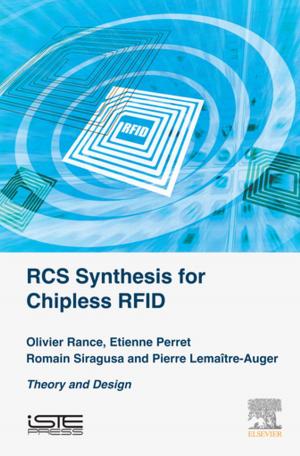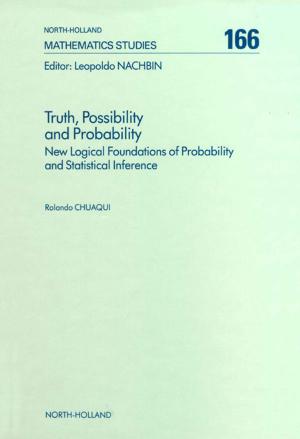Routley-Meyer Ternary Relational Semantics for Intuitionistic-type Negations
Nonfiction, Science & Nature, Mathematics| Author: | Gemma Robles, José M. Méndez | ISBN: | 9780128045091 |
| Publisher: | Elsevier Science | Publication: | January 2, 2018 |
| Imprint: | Academic Press | Language: | English |
| Author: | Gemma Robles, José M. Méndez |
| ISBN: | 9780128045091 |
| Publisher: | Elsevier Science |
| Publication: | January 2, 2018 |
| Imprint: | Academic Press |
| Language: | English |
Routley-Meyer Ternary Relational Semantics for Intuitionistic-type Negations examines how to introduce intuitionistic-type negations into RM-semantics. RM-semantics is highly malleable and capable of modeling families of logics which are very different from each other. This semantics was introduced in the early 1970s, and was devised for interpreting relevance logics. In RM-semantics, negation is interpreted by means of the Routley operator, which has been almost exclusively used for modeling De Morgan negations. This book provides research on particular features of intuitionistic-type of negations in RM-semantics, while also defining the basic systems and many of their extensions by using models with or without a set of designated points.
- Provides a clear development of the fundamentals of RM-semantics in a new application
- Covers the most general research on ternary relational semantics
- Includes scrutiny of constructive negation from the ternary relational perspective
Routley-Meyer Ternary Relational Semantics for Intuitionistic-type Negations examines how to introduce intuitionistic-type negations into RM-semantics. RM-semantics is highly malleable and capable of modeling families of logics which are very different from each other. This semantics was introduced in the early 1970s, and was devised for interpreting relevance logics. In RM-semantics, negation is interpreted by means of the Routley operator, which has been almost exclusively used for modeling De Morgan negations. This book provides research on particular features of intuitionistic-type of negations in RM-semantics, while also defining the basic systems and many of their extensions by using models with or without a set of designated points.
- Provides a clear development of the fundamentals of RM-semantics in a new application
- Covers the most general research on ternary relational semantics
- Includes scrutiny of constructive negation from the ternary relational perspective















